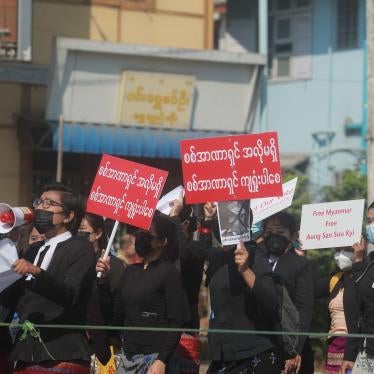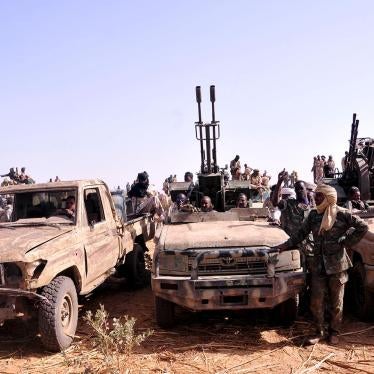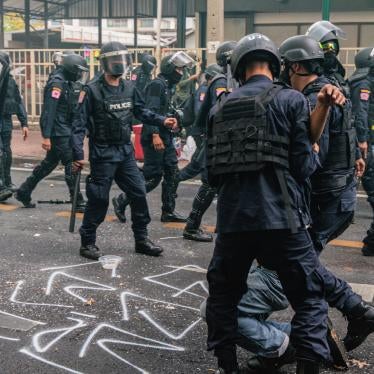Human Rights Watch charged that the government of President Habibie could have prevented the violence in East Timor on Saturday by acting earlier to disarm pro-Indonesia militias. The organization called on Indonesia's major donors to make further disbursements of World Bank adjustment loans conditional on verifiable progress by the Indonesian government in disarming the militias and prosecuting those responsible for the violence.
Militia violence has escalated steadily since January 1999, causing thousands of villagers to be displaced and several dozen people to be killed. In the most recent incident, at least twelve and as many as eighteen people were killed in Dili on April 17 when militias attacked the home of independence activist Manuel Carrascalao, killing his son and many others who had sought refuge in the house.
"There was ample warning that these militias, backed by local civilian and military authorities, would attack pro-independence targets, but the government in Jakarta did nothing," said Sidney Jones, Asia director of Human Rights Watch. "Now it's a question of whether Indonesia's major donors will put the necessary pressure on Jakarta to disarm the militias and get an international presence in East Timor as quickly as possible."
Jones noted that there was also a medical crisis, with the Indonesian government holding up assistance by international humanitarian agencies, both in the form of additional doctors as well as badly needed medical supplies. The crisis has been caused not only by the exodus of non-Timorese healthcare professionals, following some well-publicized attacks on non-Timorese doctors, apparently by independence supporters, in February 1999, but also by the sharp increase in violence, with more victims than most local clinics can accommodate.
"Since appeals have not worked, it is time to exert some economic pressure, and adjustment loans are a useful tool," said Jones. At the July 1998 meeting of donors collectively known as the Consultative Group on Indonesia (CGI), the World Bank agreed to make several major loans to Indonesia, totalling more than US$3 billion, only $1 billion of which has been disbursed. In an upcoming meeting in May, the Bank board will have to approve two loans, the social safety net adjustment loan (SSNAL) and the public reform structural adjustment loan (PRSAL). Human Rights Watch urges executive directors of the Bank from CGI countries to vote to delay approval of these loans until the government has taken concrete steps to disarm the militias in East Timor.
"Both of these loans have laudable goals, but the Indonesian government's unwillingness to control these militias raises doubts about its willingness to undertake other difficult policy steps," said Jones. She said a delay in the loans might give the Habibie government an incentive to take action.
Human Rights Watch cited the following evidence of the lack of political will of the Habibie government to curb the violence in East Timor:
Civilian militias have been operating with the formal and visible support of local authorities and in some case are led by civilian or military officials.
The individuals who instigated the violence on April 17 have a long history of involvement with the military and have been allowed to engage in threats and violence with impunity.
The attack on April 17 was widely rumored, but the government took no steps to avert the violence.






